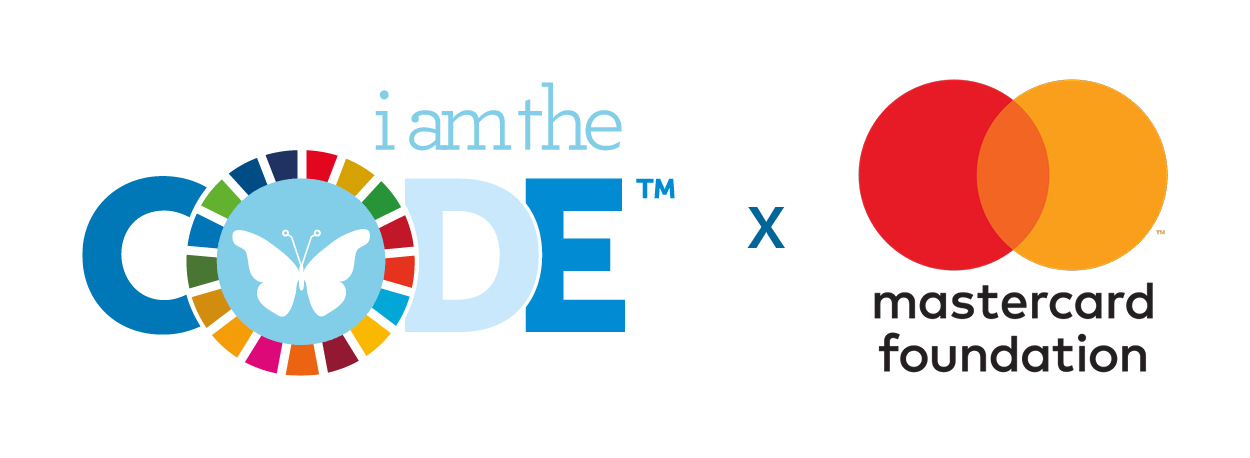
By Lady Mariéme Jamme, Founder of iamtheCODE
I still remember the first time I travelled to Kakuma Refugee Camp nine years ago through the World Economic Forum and the Young Global Leaders.
I had no idea how profoundly that visit would shape the next decade of my life.
Where many saw headlines and statistics, I saw something else: potential and Hope.
I met girls with brilliant minds and big dreams—but no systems strong enough to support them. That moment sparked a promise in me: to build a movement that would deliver not just education but dignity, purpose, and visibility* to girls like them. That promise became iamtheCODE
Since then, with the unwavering support of private donors and our key partner, the Mastercard Foundation, we’ve reached over 150,000 young women and girls worldwide—including 6,730 girls across 13 schools in Kakuma. We’ve created a space that nurtures both skills and soul through coding, digital literacy, mental health support, mentorship, and over 370,928 meals served. We’ve also trained 60 teachers to carry this mission forward.
Over the past nine years, iamtheCODE has placed the displacement of refugees—especially young women and girls—at the heart of its strategy, working tirelessly to ensure they are not left behind in the digital revolution. While many of these girls are still in school, a growing number are mentoring others, leading community initiatives, and even launching entrepreneurial ventures. These early outcomes prove that when you don’t just teach girls—but believe in them—remarkable things happen.
While many of these girls are still in school, a growing number are mentoring others, leading community initiatives, and even launching entrepreneurial ventures. These early outcomes prove that remarkable things happen when you don’t just teach girls—but believe in them.
Some of the girls I met at age 11 are now 18 or 19—ready to take on the world.
Today, I’m proud to say that Kakuma is home to the first-ever iamtheCODE Academy—a safe, creative learning space where girls can access structured education, mentorship, and a platform to dream. And we’re expanding. Dadaab is next in June, with the support of the Foundation and other dedicated partners.
This work directly supports the Shirika Plan, the Kenyan Government’s vision to empower refugee and host communities through education, self-reliance, and inclusion. We are proud to align with this national effort and are working closely with schools, NGOs, and ministries nationwide.
From now through 2025, our mission is to partner with the Government of Kenya, UNHCR, and other stakeholders to integrate digital skills, AI education, and innovation labs into the Shirika Plan—especially in Dadaab, Kakuma, Kalobeyei, and surrounding host communities.
As we enter a new era shaped by artificial intelligence, we must ask ourselves: Who is shaping it?
In Kakuma, AI is becoming a bridge to opportunity. Our girls are using it to develop real-world solutions—from climate adaptation tools to mental health apps. AI has the potential to radically transform the lives of women and girls across Africa—creating access, equity, and opportunity where there was none. Already, our girls have built their own AI-powered doctor—a tool designed to provide basic health education and mental wellness support to underserved communities. But if we want AI to empower, not exclude, we must invest in our girls now. We live in a time when relentless exposure to global suffering can numb us. But now more than ever, we must reject apathy. We must choose empathy, awareness, and action—especially for girls and young women in refugee settings.
Technology cannot just be about innovation. It must be about inclusion.
To everyone reading this—whether you’re a policymaker, funder, technologist, or teacher—you have a role to play.
Use your voice. Share your power. Partner with us.
Because the future of technology must include every girl.
And the future is hers to write. I’m just here to hand her the pen.